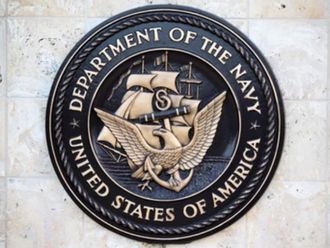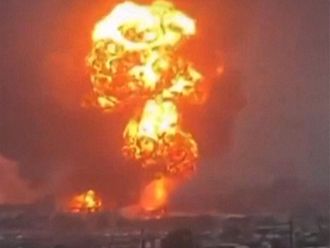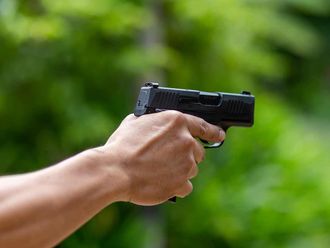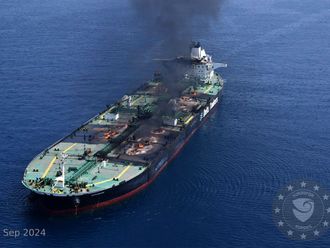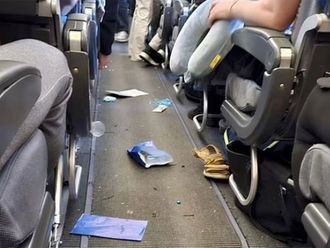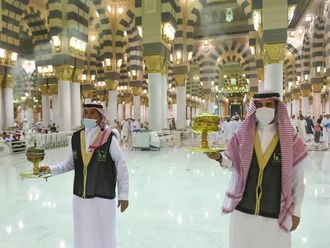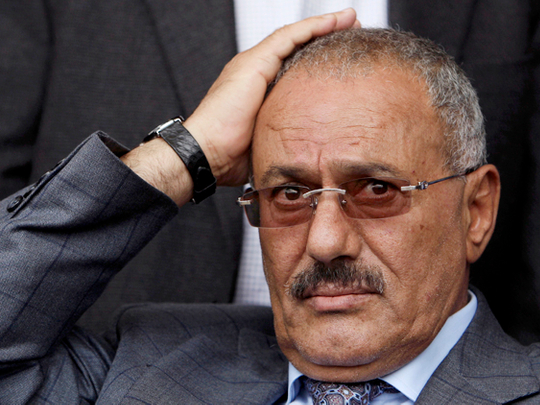
Sana'a: Yemen's president, hospitalised in Saudi Arabia after an attack nearly a month ago on his palace, has instructed his deputy to hold talks with political opponents on a deal to transfer power and end the nation's spiraling political crisis, his foreign minister said Wednesday.
The opposition, wary after numerous pledges, dismissed the announcement.
Abu Bakr Al Qirbi, the foreign minister, was speaking from neighboring Saudi Arabia after a quick visit with President Ali Abdullah Saleh, who was badly burned and suffered other wounds in the June 3 attack on his compound in Yemen's capital, Sana'a.
Nearly five months of protests by crowds calling for his ouster have left Saleh clinging to power.
Defections by key allies and immense international pressure have failed to push him to negotiate an end to his nearly 33 years in power.
Saleh's Saudi hosts are among a group of six nations in the Gulf seeking to persuade him to step down, though he has held onto power during his absence through his sons and other relatives, some of whom command military units.
Militants
But recent days have seen militants - some believed to have links to Al Qaida - seizing upon the growing chaos to take over entire towns in southern Yemen, and pressure is mounting for a resolution of the crisis.
"The president directed his deputy and the government to begin dialogue with the other parties in the opposition in accordance with the Gulf initiative and the latest UN Security Council statement," Al Qirbi said, speaking on Yemeni television.
The Security Council has pressed for inclusive political dialogue.
The six-nation Gulf Cooperation Council first proposed a deal for transferring power months ago. In return for stepping down, Saleh and his family would get immunity from prosecution. Saleh promised at least three times to sign the deal but each time balked at that the last minute.
Immediate transfer
In response to Wednesday's announcement, the opposition said that at this point, anything less than an immediate transfer of power would fall short of their demands.
"Yemen can't take anymore maneuvering or declarations to waste time," said opposition spokesman Mohammed Qahtan. "The economic and security conditions are very serious and what is required first is an immediate decision to begin transfer of power and then dialogue can come."
Vice President Abed Rabbo Mansour Hadi has been acting as president in Saleh's absence, and had met with the opposition before. However, hard-liners in Saleh's party had refused to discuss any transition of power in the absence of the longtime president.
Saleh had been expected to address his people, and officials said he may speak by Thursday. But the Yemeni health minister, who also visited Saleh in Saudi Arabia, said only that the president would appear to the media "soon," without naming a date.
The minister, Abdul-Karim Rafai, said Saleh was in good health, but didn't elaborate.
It is not clear when - or if - he will return, deepening uncertainty in the poor nation at the southern corner of the Arabian Peninsula.
In Washington, US State Department spokesman Mark Toner urged a move forward regardless of Saleh's anticipated speech.
"Considering that he was supposed to sign it (the GCC agreement) weeks ago and backed away, it's difficult to predict what he'll announce tomorrow. I understand there was some violence overnight in Yemen. That's discouraging news. It's important that Yemen move forward no matter what President Saleh may say."
Impoverished nation
Even before this year's turmoil, Yemen was a fragile, conflict-ridden and impoverished nation.
It is also home to Al Qaida in the Arabian Peninsula, the terror network's most active branch, according to an assessment by the US.
Hundreds of Islamic militants have seized several towns in southern Yemen in recent weeks and government forces have been trying for days to drive them back.
On Wednesday, a Yemeni air force jet mistakenly bombed a bus during battles in one of the towns, Zinjibar, and killed four people. Clashes between the fighters and government troops left 23 dead on both sides.
Meanwhile, in the southern city of Taiz, activist Bushra Al Muktari said Republican Guard forces shelled anti-Saleh protesters camped out at a central square early Wednesday, killing one and wounding four demonstrators.
Defected
Abdul-Karim Al Shayef, acting governor of Aden, was reported to have defected to Jordan, officials in the governor's office said Wednesday.
The political crisis began with protests by largely peaceful crowds that endured a bloody government crackdown. At the end of May, days of street battles broke out in the capital between government forces and armed fighters loyal to Yemen's most powerful tribal leader, who turned against the president.
Both sides announced Wednesday that those battles claimed far more lives than initially reported.
That fighting killed 118 policemen and security men and wounded 1,402, Yemen's state television quoted Interior Minister Gen. Mouthar Al Masri as saying.
The TV report said Al Masri was talking to a delegation from the UN High Commissioner for Human Rights that is visiting Yemen to investigate possible human rights violations.
The tribal leader, Shaikh Sadeq Al Ahmar, also met with the delegation and said 104 of his men were killed and hundreds others were wounded.
Hundreds of thousands of Yemenis demonstrated Wednesday in Sana'a and six other major cities to demand Saleh's ouster.


